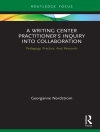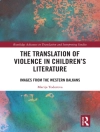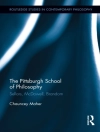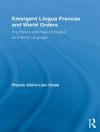This book explores the bidirectional relationship between language and poverty, from the perspectives of linguistics, language policy and planning, economics, anthropology, and sociology. On the one hand, poverty affects language survival; in modern times the fundamental determinants of language shift and language death are economic. On the other hand, the languages people speak, or don’t speak, can influence their economic status in substantial ways, limiting or facilitating access to jobs and education and full participation in the functions of the society. The issues encompassed by the twin themes of the volume have assumed growing significance in an era of increasing globalization and accelerating change in economies, technologies and traditional social structures. They are of practical concern to people in a wide range of disciplines and professions, including politicians, educators, social workers, language planners, and others who work and live in multilingual contexts.
Table des matières
Chapter 1. Introduction – Wayne Harbert, Sally Mc Connell-Ginet, Amanda Miller and John Whitman
Section I: Poverty as a Factor in Language Maintenance and Language Death
Chapter 2. Poverty as a Factor in Language Maintenance and Language Death: Some Case Studies from Africa – Herman Batibo
Chapter 3. Language Diversity and Poverty in Africa – Matthias Brenzinger
Section II: Language as a Determinant of Access to Resources
Chapter 4. The Impact of the Hegemony of English on Access to and Quality of Education with Special Reference to South Africa – Neville Alexander
Chapter 5. Econolinguistics in the USA – John Baugh
Chapter 6. Where in the World is US Spanish? – Ofelia Garcia and Leah Mason
Chapter 7. Perpetuating Inequality: Language Disadvantage and Capability Deprivation of Tribal Mother Tongue Speakers in India – Ajit Mohanty
Section III: Language and Poverty: A Cross-disciplinary Perspective
Chapter 8. Biodiversity, Linguistic Diversity and Poverty: Some Global Patterns and Missing Links – Suzanne Romaine
Chapter 9. Language and Poverty: Measurement, Determinants and Policy Responses – François Vaillancourt
Chapter 10. Losing their Names: Native Languages, Identity and the State – Peter Whiteley
Section IV: Language, Poverty and the Role of the Linguist
Chapter 11. The Role of the Linguist in Language Maintenance and Revitalization: Documentation, Training and Materials Development – Lenore Grenoble, Keren Rice and Norvin Richards
Chapter 12. Preserving Digital Language Materials: Some Considerations – Helen Aristar-Dry
Conclusion
A propos de l’auteur
John Whitman, Professor and Chair of Linguistics at Cornell University, works on syntactic variation and language change. His research includes work with endangered minority languages of Japan (Ryûkyûan), Korea (Kyeongsang-do dialect), and the Peopleâs Republic of China (Tibetan, Bai).












